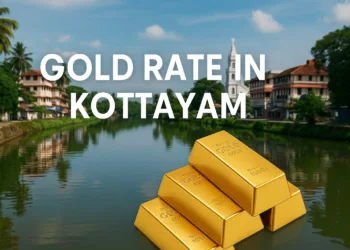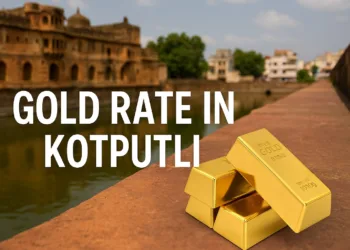In a characteristically provocative Truth Social post, President Donald Trump has stirred international headlines by claiming the United States has “lost India and Russia to deepest, darkest China.” This dramatic statement comes after witnessing Chinese President Xi Jinping host Russian President Vladimir Putin and Indian Prime Minister Narendra Modi at the Shanghai Cooperation Organization (SCO) summit in Tianjin.
Table of Contents
Trump Context Behind Trump’s Comments
Trump’s inflammatory remarks weren’t made in isolation. The timing coincides with several significant geopolitical developments that have clearly frustrated the former president turned current commander-in-chief. The SCO began as a security forum to counter U.S. influence in Central Asia but has grown in importance over the years.
The summit images showing the three world leaders in warm diplomatic exchanges apparently struck a nerve with Trump, who sarcastically added, “May they have a long and prosperous future together!” to his post.

Trade Tensions and Tariff Wars
Trump’s frustration with India stems largely from ongoing trade disputes and India’s continued economic relationship with Russia. Trump said India “buys most of its oil and military products from Russia, very little from the U.S.”
The Trump administration has responded with aggressive tariff policies:
| Country | Tariff Rate | Reason | Impact |
|---|---|---|---|
| India | 25% (additional) | Russian oil purchases | Trade relationship strain |
| India | 25% (existing) | Trade barriers to US firms | Economic pressure |
| Russia | Various sanctions | Ukraine war involvement | Limited direct trade |
| China | Multiple tariffs | Trade imbalance concerns | Ongoing trade war |
The Diplomatic Fallout
Modi has also bristled at Trump’s claims to have brought about a ceasefire in the recent conflict between India and Pakistan. This diplomatic tension represents a significant shift in what has traditionally been a strengthening US-India partnership built over decades following the Cold War.
The irony isn’t lost on foreign policy experts: Trump’s aggressive tariff strategy may be pushing India closer to the very countries he’s trying to counter. Trump’s tariffs on Indian imports push New Delhi closer to Russia and China, straining the decades-long US-India strategic partnership built after the Cold War.
International Response and Reality Check
The international community has pushed back against Trump’s conspiracy theories. Chinese Foreign Ministry spokesperson Guo Jiakun said: “The purpose was to join peace-loving countries and peoples in remembering history, honoring those who sacrificed their lives, cherishing peace and looking to the future.”
Russian officials have also dismissed Trump’s concerns, with Putin aide Yuri Ushakov suggesting Trump may have been being ironic when he said Putin Xi and Kim were plotting against America.
The Broader Geopolitical Implications
Trump’s latest outburst reveals deeper anxieties about America’s global position. Earlier this week, he had accused Russia, China, and North Korea of conspiring against the U.S. during a military parade commemorating the end of World War II.

Key Concerns for U.S. Foreign Policy:
- Alliance Strain: Traditional partners reconsidering relationships
- Economic Leverage: Tariffs potentially backfiring diplomatically
- Regional Influence: SCO growing as alternative to U.S.-led institutions
- Strategic Miscalculation: Pushing allies toward competitors
What This Means for Global Politics
The convergence of India, Russia, and China at international summits represents more than ceremonial diplomacy. It signals potential realignment in global power structures that could reshape international relations for decades.
India’s position is particularly complex. As the world’s largest democracy, it has historically maintained strategic partnerships with the U.S. while pursuing independent foreign policy. Trump’s tariff-heavy approach may be forcing New Delhi to prioritize economic relationships over traditional Western alliances.
The Economic Reality
Despite Trump’s dramatic language, the economic relationships between these nations are driven by practical considerations rather than anti-American sentiment. India’s energy needs, Russia’s oil surplus, and China’s massive manufacturing capacity create natural economic partnerships that transcend political preferences.
However, Trump’s “America First” approach through tariffs may be inadvertently strengthening these alternative partnerships, creating the very outcome he claims to oppose.
Looking Forward
The Shanghai Cooperation Organization summit and Trump’s reaction highlight the challenges facing American foreign policy in a multipolar world. Traditional tools of economic pressure may be less effective when target countries have alternative partners willing to fill the gap.
For American businesses and investors, these developments signal the importance of understanding how trade wars and diplomatic tensions can reshape global markets in unexpected ways.
The question remains whether Trump’s confrontational approach will ultimately strengthen American influence or accelerate the formation of alternative power blocs. Current evidence suggests the latter may be occurring, turning his “deepest, darkest China” rhetoric into a self-fulfilling prophecy.
For more analysis on international trade relations and their impact on global politics, visit our international affairs section.
Sources: Newsweek, Al Jazeera, Fox News
Frequently Asked Questions
Q: What exactly did Trump say about India, Russia, and China?
A: In a Truth Social post on September 5, Trump claimed that “it looks like we’ve lost India and Russia to deepest, darkest China,” referring to the three leaders meeting at the Shanghai Cooperation Organization summit in Tianjin. He sarcastically added “May they have a long and prosperous future together!” The comment came after seeing images of Chinese President Xi Jinping hosting Russian President Putin and Indian Prime Minister Modi at the summit.
Q: Why is Trump imposing tariffs on India, and how might this affect US-India relations?
A: Trump has imposed a 25% tariff on India for two main reasons: India’s continued purchases of Russian oil despite the Ukraine war, and existing trade barriers that Indian policies place on American firms. The administration argues that India “buys most of its oil and military products from Russia, very little from the U.S.” However, foreign policy experts warn that these tariffs may backfire by pushing India closer to Russia and China, potentially damaging the decades-long US-India strategic partnership that was carefully built after the Cold War to counter Chinese influence in the region.








